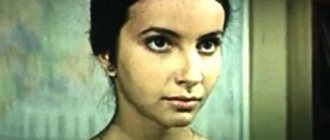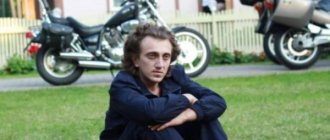Biography of Pamfilova
Ella Pamfilova was born in the city of Almatyk in 1953. This is a small settlement in Uzbekistan, now about 120 thousand people live in it.
She received her higher education in Moscow. At the Energy Institute she defended her diploma with a degree in electronic engineering.
Immediately after graduation I worked in my specialty. Her working career began in 1976, when she was 23 years old. Ella Pamfilova got a job at Mosenergo. First as an engineer, then as a foreman, she headed the trade union committee of the organization.
Became a member of the Communist Party of the Soviet Union. I passed my membership card in 1990.
In 1989, Ella Pamfilova became a people's deputy of the USSR. She represented trade union organizations in parliament. She was a member of the environmental committee and the anti-corruption commission.
The rise in the career of Ella Pamfilova
In 1985, Pamfilova joined the CPSU, and in 1989 she was elected to the Supreme Council from trade unions - to the committee on ecology and rational use of natural resources. In 1990, she left the CPSU, joining the democratic opposition. In the same year, she took the position of secretary of the Supreme Council for Privileges and Benefits, worked in the anti-corruption commission, but, as Ella Pamfilova said in an interview, she did not achieve significant results in this area.
Ella Pamfilova was a non-party member during Perestroika
In 1991, Pamfilova took the post of Minister of Social Protection of the Population of the Russian Federation, by decree of President Boris Yeltsin. It was Ella Pamfilova who was able to initiate the introduction of computerization of the pension system. At the end of 1992, she wanted to resign in protest against the dismissal of Prime Minister Yegor Gaidar. The president never signed Pamfilova's resignation, and she continued her career under Prime Minister Viktor Chernomyrdin. Ella Pamfilova considers her main achievement of this period to be the organization of the social movement “For a Healthy Russia,” of which she has been the leader since 1996.
In 2000, Pamfilova ran for President of the Russian Federation and took 7th place. She became the first woman in the history of modern Russia to run for the post of President. The leaders of these elections and Pamfilova’s worthy rivals in the fight for the post of head of state were Vladimir Putin (52.94% of the votes), Gennady Zyuganov (29.21% of the votes) and Grigory Yavlinsky (5.80% of the votes).
Ella Pamfilova and Vladimir Putin
In 2010, Ella Pamfilova, due to many disagreements in the conduct of politics, voluntarily resigned as chairman of the Council under the President of the Russian Federation for promoting the development of civil society institutions and human rights. Ella Pamfilova at Posner's
Political career
After the collapse of the Soviet Union, Pamfilova began to actively participate in the political life of the country and occupy leading positions. In November 1991, she headed the Ministry of Social Protection of the Population.
Despite her high position, she tried to resign a year after her appointment. However, Russian President Boris Yeltsin did not accept Pamfilova’s resignation letter. As a result, she entered the cabinet of ministers of the new head of government, Viktor Chernomyrdin.
Only in February 1994 was her next resignation request granted.
In the early 90s, Pamfilova became a deputy of the State Duma. She entered the federal parliament from the Kaluga region. Two months after her resignation from the post of minister, she headed the public council on social policy under the head of state.
In 1996 she became the head of the social movement “For a Healthy Russia”. Subsequently, the movement “For Civil Dignity” was formed on its basis. In 1999, she failed to get a seat in the State Duma.
Theater career
Immediately after graduating from the theater technical school, Olga Vikland was accepted into the MOSPS troupe, where her teacher and then her husband Vasily Vanin were the artistic director. Olga Arturovna was his best student. It was on the stage of this theater that she played her most significant role. Lyudmila in the play “Vassa Zheleznova” became the most beloved role of the famous and talented actress.
In 1940, Wikland played in the second cast of Mirandolina in the production of The Innkeeper. On the stage of this theater she played diverse and characteristic roles in 10 performances.
It is known that in 1949 Vasily Vanin was offered to head another theater, and he immediately agreed. And the very next year Olga Vikland herself and her second husband moved to the same Pushkin Theater. Olga Arturovna became the leading actress. When Vasily Vanin died, Vikland remained in the theater. And despite the fact that many directors changed, she was able to work in it for forty years.
At the Pushkin Theater, the outstanding actress Vikland played in ten performances. This is the role of Marfa in the production of “Slave Woman”, Saltykova in the play “The Last Days” and others. But she wasn’t the only one who took part in the performances. It is known that Olga Vikland, whose biography is eventful, always tried to support young and talented actors. She was a real mentor for them.
But the theater itself treated her cruelly. One day a new director appeared who began to offer her minor roles that did not at all correspond to her talent and level of acting. Olga Arturovna was a proud person, and she immediately wrote a letter of resignation. Then she regretted that she herself had not left the theater earlier.
Woman President
In 2000, Ella Pamfilova, whose biography was closely connected with politics, nominated herself for the presidential election. She became the first female candidate for the highest office in Russian history.
A total of 11 names were on the ballot. More than 750 thousand Russians voted for Pamfilova. In percentage terms, it was slightly more than 1 percent. With this result, Pamfilova took 7th place.
She managed to beat Stanislav Govorukhin, as well as Yuri Skuratov, Alexey Podberezkin and Umar Dzhabrailov by almost 2 times.
Konstantin Titov, Vladimir Zhirinovsky, Aman Tuleyev, Grigory Yavlinsky, Gennady Zyuganov and Vladimir Putin, who won the first round, scored more than Pamfilova. Almost 40 million Russians cast their votes for him. That's almost 53% of the vote.
It is worth noting that Pafmilova’s result was so low that, for example, almost 2% of voters voted against all candidates, and the number of spoiled ballots was approximately the same as the number of people who supported the first woman who wanted to become president.
Social work
Since 2000, Ella Pamfilova, whose photos were regularly published in newspapers, has concentrated on social activities. She joined the commission to investigate crimes in the North Caucasus. Organized civil forums.
In 2002, Russian President Vladimir Putin appointed Pamfilova chairman of the human rights commission under the head of state. In 2010, she actively opposed amendments to legislation adopted by the federal parliament, which significantly expanded the powers of the FSB.
In July of the same year, she voluntarily resigned from the post of chairman of the Council for Promoting the Development of Civil Society Institutions under the head of state.
Ella Pamfilova became head of the Central Election Commission
The election of Ella Pamfilova as the new chairperson of the Central Election Commission is already being called a symbolic step to both increase confidence in the elections and attract human rights activists to monitor the electoral process. She was elected by the Central Election Commission members almost unanimously - 14 to one, and based on the results, someone sensitive even said: now the Central Election Commission has a beautiful face.
Pamfilova assures that she will not be distinguished by beauty alone, because the elections are coming soon, the attention to them will be enormous, and the Central Election Commission also deals with issues of their reputation, reacting to any violations and injustices. And this election, coupled with the start of the primaries for the largest party - United Russia - can already be considered the first signs of the beginning political race.
My colleague Ekaterina Kibalchich tried to understand what the next hot political season will be like.
The Western press wrote that now the head of the election commission is “Russian Be. Having gone through tons of human tears, I dare to say that our ordinary citizen is vulnerable not only to the criminal world, but often, unfortunately, to the law enforcement system itself,” noted Ella Pamfilova.
She began working as a human rights activist a decade and a half ago. In 2010, she fundamentally left the post of head of the Human Rights Council under the President due to disagreements with the administration. In 2014, she returned to the position of ombudsman and worked, among other things, on voter rights. Today there are white roses for “BeSee where the most problematic regions were, where there was the most abuse. And now, I want to say again, following the tails of previous election campaigns: what vices have come to light,” said Ella Pamfilova.
This week the CEC held a closed meeting. The commission determined the strategy for preparing for the elections. And Ella Pamfilova took personal control of the elections in Moscow and St. Petersburg.
“I hope that this commission will show its highest professionalism at the elections of deputies to the State Duma, which will take place on September 18,” said Sergei Mironov.
Pamfilova’s elections only once again reminded politicians that there is less than six months left before voting in the Duma elections. And internal party selections should take place as early as possible.
“So you are the candidates? You're very unlucky. Previously, it was quite easy, or at least less expensive, to become a candidate from the largest political force. It was enough to have good relations with the leadership of the party, the leadership of the region, to be in the regional elite, as they say. But now this is not enough, and in order to become a full-fledged candidate from our party, you have to go through fire, water and copper pipes,” said Dmitry Medvedev.
The largest party, United Russia, launched the “Candidate” project for young politicians. This is selection and preparation for debates and primaries.
“Many people are taking part in such an event for the first time. Our task is to give them the opportunity to have a reasoned discussion. If they become winners, of course, with political opponents on the platforms and in debates,” noted Sergei Neverov.
United Russia debates and internal party elections took place in a dozen regions this week. The party has not yet announced the program, but it is clear that this company will rely on youth and the continuity of generations.
The second highest-rated party, the Communist Party of the Russian Federation, does not hold primaries. As its leader, Gennady Zyuganov, explained, the candidates and program were approved in the fall.
“This material has already been published in 20 million copies, and many have read it. Almost all the districts have already been assigned, those recommended by local organizations have been assigned to these districts, and they are now working very closely,” said the head of the Communist Party of the Russian Federation faction Gennady Zyuganov.
The posters of the Communist Party of the Russian Federation in this campaign will have an unexpected slogan that the left party is actually right. At the same time, the right-wing party just changed its name. At the recent congress, Right Cause was renamed the Party of Growth. The new logo is a blue arrow.
The LDPR also began an active campaign ahead of the official deadline. The new slogans with which the LDPR is going to the elections look like well-forgotten old ones. And the party still relies on the odious charisma of its leader, who last week celebrated his 70th birthday, but despite his age, is in good shape.
“Look, only the light in my window is on. You can come up to the Bolshoi Theater, 10th floor: “Oh, Zhirinovsky is already at work!” In the evening the lights will go out at 9. And everything is dark under me,” says Vladimir Zhirinovsky.
The leader of A Just Russia, Sergei Mironov, did not sit in the Duma this week, listening to complaints from voters in the new party, he explained.
One of the leaders of Yabloko, Grigory Yavlinsky, is not yet involved in campaigning. But he hopes that after the congress he will be entrusted with leading the party to the elections in order to overcome the five percent barrier.
“The congress will be in mid-June, at which the official party lists will be approved, this will be the beginning of the campaign. We have had a faction in the State Duma for 10 years, and we need to return to the State Duma and again create the Yabloko faction,” said the chairman of the Yabloko Federal Political Committee, the founder of the party, Grigory Yavlinsky.
The new chairman of the Central Election Commission, Ella Pamfilova, understands the problems of small parties well, because before her human rights work, she herself was elected to the State Duma several times and lost the elections once. 20 years later, Ella Pamfilova promises that she will help both parties and voters make future elections fair.
“If there are any abuses or use of administrative resources on anyone’s part, believe me, my colleagues and I will not stand aside and turn a blind eye to please some, excuse me, unpopular leader at some level.” who is trying to take over everything, including the regional election commission, at any cost and pass, discrediting the very idea of elections, believe me, this will not pass us by. But at the same time, don’t adjust to anyone, don’t adjust, don’t be an opportunist, don’t look either to the West or to the East, but only proceed from what you should do in accordance with your direct responsibilities, a sense of duty,” Ella emphasized Pamfilova.
According to VTsIOM, if elections to the State Duma were held next Sunday, 47.5% would vote for United Russia, 9.1% for the Communist Party of the Russian Federation, 9.2% for the Liberal Democratic Party, 5% for A Just Russia. .4% of respondents. But this is before the start of the election campaign. It will be officially announced in May. However, the unexpected change in the leadership of the Central Election Commission has actually already given the start to the future campaign.
Work in the Council for the Development of Civil Institutions
During her leadership of the Presidential Council for the Development of Civil Institutions, Pamfilova put forward a number of initiatives.
In particular, at her proposal, amendments were made to the law on citizenship. Thanks to them, in the mid-2000s, about 850 thousand people who remained in the former republics of the USSR after the collapse of the Soviet Union were able to obtain Russian citizenship.
In 2005, the Council initiated a decree on measures to improve the financial situation of disabled people who received military injuries. As a result, it was signed by the president. Almost 100 thousand military pensioners received an increase in their pensions.
When Dmitry Medvedev was president, the Council initiated the improvement of legislation regarding the treatment of non-profit organizations. As a result, amendments were adopted that eliminated many systemic problems.
As Commissioner for Human Rights
In January 2014, Pamfilova’s candidacy was approved by the Federal Public Chamber for nomination to the post of Commissioner for Human Rights. In this post, she replaced Vladimir Lukin, who held this position for 10 years.
She officially took up her duties on March 18. She worked as an ombudsman for two years. During this time, she managed to significantly increase the authority of the domestic institution of human rights ombudsmen in the international arena.
In addition, Ella Pamfilova initiated some significant legal changes. But critics also note many negative consequences.
In particular, under Pamfilova, the institution of the ombudsman began to apply to the Constitutional and Supreme Courts much less frequently. In addition, many noted the policy of double standards in relation to applicants’ applications. Thus, high-profile cases in which popular and media personalities had problems with justice were considered separately. Pamfilova always showed particular activity in these matters. The website regularly published a list of those she helped.
The election of Ella Pamfilova as chairman of the Central Election Commission was a big event in the political world of Russia, because she is the first woman to occupy this responsible post. Her career was successful - Ella Aleksandrovna began as the chairman of the trade union committee at a mechanical repair plant, was the Minister of Social Protection of the Population, a State Duma deputy, and the leader of the movement “For Civic Dignity”. It is admirable that all these qualities of a public figure are harmoniously combined in Pamfilova with charm and femininity. Now she has more opportunity to do work - her daughter has grown up, and she is divorced from her husband.
Ella Pamfilova’s husband studied with her at the same institute - the Moscow Energy Institute, where she entered immediately after school. They met in an operational squad that walked around Moscow at night and kept order. Before getting married, they dated for three years, and this was one of the most romantic periods in Pamfilova’s life.
When her husband was drafted into the army, Ella Alexandrovna, who by that time already had a daughter, went to pick up her husband hundreds of kilometers from the capital. The conditions in which their family had to live were more than spartan - they had to cook and boil clothes on kerosene gas, and to heat the house they lit a stove. Ella tried to ensure that her husband and daughter lived in comfort and warmth and carried out the entire life on herself. After two years of difficult life, they returned to the capital, Ella Alexandrovna got a job at a mechanical repair plant of a production association as a process engineer and again tried as best she could to make sure everything in her family was the best. Ella Pamfilova’s husband was in the shadow of his wife, who became the support of the family and who bore all the responsibility for her.
Social and then government work took a lot of time and effort, and Ella Alexandrovna needed her husband’s support, which, unfortunately, she did not feel at all. In 1989, Pamfilova became a deputy of the Supreme Council of the USSR on trade union lists, then she was appointed secretary of the Supreme Council commission to combat the privileges of those in power. When she became the Minister of Social Protection of the Population, her whole life was subordinated to work, and this was reflected in her relationship with her husband. He made a fuss over his wife’s late returns and was incredibly jealous of her. Gradually, the couple moved away from each other, and, after living together for seventeen years, they separated.
She has always been a strong person, and therefore the divorce did not unsettle her, and her work did not leave time for sad thoughts. Now Pamfilova’s family consists of her daughter Tatyana, son-in-law and granddaughter. Unfortunately, we don’t have to communicate with loved ones as often as we would like, but Ella Alexandrovna always finds time to see her granddaughter and most often this happens in the summer at their dacha near Moscow.
Pamfilova calls herself a very amorous person, but she has no intention of getting married again. She says that she could do this at any moment, especially since there were always enough people who wanted to become Ella Pamfilova’s husband, but now she no longer wants to break the established way of life and change anything in her environment. Pamfilova does not feel lonely; on the contrary, she sometimes wants to be alone to take a break from the noise and bustle, but this is very rarely possible. She loves animals, paints whenever possible, and loves listening to music and reading. One of the hobbies for which there is not much time left is cooking - Ella Alexandrovna excellently prepares oriental dishes, bakes cakes and pastries.
Legislative initiatives
During her tenure as Commissioner for Human Rights, Pamfilova managed to significantly expand the powers of federal and regional ombudsmen.
Federal law has been amended to prohibit the burning of grass on agricultural lands, as well as the lighting of fires in fields. These initiatives were adopted after high-profile spring fires in 2020. In many ways, they were provoked by the burning of dry grass.
Pamfilova had a negative attitude towards the proposed changes to the Water Code regulating wastewater discharges. As a result, the bill was rejected. Pamfilova initiated in her address to Vladimir Putin the issue of giving Russians participating in the military conflict in Syria the status of combat veterans. This status allowed them to receive social benefits and payments.
High-profile cases
Many journalists noted Pamfilova’s desire for publicity. Most of the cases she took on personally were widely covered in the media. Subsequently, she gave a detailed report to journalists about the results she managed to achieve.
Thus, on the website of the Commissioner for Human Rights, Pamfilova’s participation in the case of the Ukrainian pilot Nadezhda Savchenko was covered in detail. At the same time, no complaints were received from Savchenko to the Ombudsman, so, apparently, the assistance was initiated by the Ombudsman himself. Although this is not provided for by law (participation of an authorized person in a case without an appeal).
Also on her initiative, Russian President Vladimir Putin ordered the case of environmentalist Evgeny Vitishko to be checked. As a result, imprisonment was replaced by restriction.
Pamfilova often provided assistance to opposition political activists involved in the Bolotnaya case, and repeatedly visited prisoners in pre-trial detention centers.
Scandalous statements
Often, Pamfilova’s speeches in the media became the subject of heated discussions and debates. The fact is that the ombudsman must be a neutral figure and not participate in political life.
At the same time, in 2020, Pamfilova initiated the deprivation of the Maria Gaidar Foundation of a previously received presidential grant for solving social issues of citizens in the field of healthcare. As observers note, this was caused by Gaidar’s decision to take a position in the Odessa administration of Mikheil Saakashvili.
Pamfilova’s appeal regarding the suspects in the Oboronservis case also caused a great stir. When Evgenia Vasilyeva was specially released from the colony, the ombudsman announced that there were two levels of legal proceedings in Russia - for ordinary citizens and for the elite.
Ella Pamfilova called the AP journalist's statement about threats from the Central Election Commission absurd and slanderous
Central Election Commission of the Russian Federation
Ella Pamfilova Central Election Commission of the Russian Federation
Chairman of the Russian Central Election Commission Ella Pamfilova said that the statement by Associated Press (AP) journalist Natalya Vasilyeva about threats from the Central Election Commission is slander.
“Firstly, no one met with her after this interview, with [Natalia] Vasilyeva herself. What kind of discrimination could we even be talking about, what kind of threats, when we calmly accredited them a week after this unpleasant incident and they could calmly work [at the Central Election Commission on a single voting day]?” — Pamfilova told TASS on Thursday.
According to her, the AP journalist needs to be held accountable for her words. “If she didn’t dream it, someone threatened her from somewhere in some way, if she has facts, then let her sue or contact law enforcement agencies. But in general, despite my loyalty to the media, if there had been any aggression on our part even in this incident, when it violated all journalistic ethics and, in general, the rules of a journalist’s work, then even here we would not have gone to court. We turned to the Public Collegium [on complaints against the press], that is, we acted as loyally as possible,” the head of the Central Election Commission emphasized.
She noted that she regards Vasilyeva’s words about threats from the Central Election Commission as slander. “I don’t know about this, I didn’t give anyone such instructions to threaten some journalist. And in principle, this seems like a reason for the Central Election Commission to sue it for this slander. But I will not do this precisely based on the fact that this is my principle - I have not taken any repressive measures against journalists, I am not taking and I am not going to take,” Pamfilova emphasized.
Let the journalistic community itself evaluate Vasilyeva’s actions according to its own criteria, the head of the Central Election Commission added.
Earlier, during an open meeting of the Public Collegium on Press Complaints, Vasilyeva said that during Pamfilova’s meeting with acting AP news director Harriet Morris on August 30 regarding the publication of an interview with the head of the Central Election Commission, “one of the commission staff members made a comment that the agency regards as threat." The journalist noted that she was informed that “she will never have a career, she will not be allowed into the Central Election Commission, the Ministry of Foreign Affairs and the Kremlin.”
AP published an interview with Ella Pamfilova on August 29. The head of the Central Election Commission declared her readiness to simplify the electoral legislation. She also said that the electoral “system is outdated, and society will not forgive us for this.”
Pamfilova proposed reducing the number of signatures required to register candidates for elections, but noted that the upcoming amendments would hardly help FBK lawyer Lyubov Sobol and other independent candidates register for the Moscow City Duma elections: there were “too many errors” in their documents. According to Pamfilova, the protests in Moscow were mainly attended by young people who grew up “under Putin”, in conditions of material prosperity, and now find no place for themselves in life. The CEC press service called the publication incorrect and distorted the essence of what Pamfilova said, and therefore asked journalists not to quote the interview.
Subsequently, the CEC appealed to the AP with a demand to clarify the current situation, as well as to provide a refutation of the mistakes made, but the controversial article was recognized by the agency as correct. The Central Election Commission considered such actions of the news agency to be a violation of the requirements of the Russian Law “On the Mass Media” and sent an appeal to the Public Collegium for Complaints against the Press. In turn, Pamfilova herself said on September 4 that AP employees used “full propaganda and censorship” when publishing her interview, distorting the meaning and taking a number of phrases out of context.
AP spokeswoman Lauren Easton then said the agency "has made no indication that the interview with the head of the Central Election Commission or its transcript will be published in full." According to her, “after publishing the story, the AP listened to the concerns of representatives of the Central Election Commission and agreed to publish an explanation with details about why some independent candidates for the Moscow City Duma were expelled.”
The Public Collegium for Complaints against the Press held an open meeting on Thursday on this issue with the participation of representatives of the Central Election Commission and the AP. The final decision of the board will be published within 20 days.
Head of the Central Election Commission
In March 2020, Pamfilova became a member of the Central Election Commission of the Russian Federation. She was included in this body under a presidential quota. Three weeks later, elections for a new chairman took place. 14 out of 15 members of the Russian Central Election Commission voted for Pamfilova.
The first main task for her was the successful conduct of elections to the State Duma, which took place in 2020.
In this post, Pamfilova spoke positively about the preliminary voting held by the United Russia party, advising other parties to follow this example.
At the same time, during the primaries, observers repeatedly recorded cases of bribery of voters and ballot stuffing.
The elections to the State Duma were very successful for the party in power. United Russia received a constitutional majority of seats in parliament.
Ella Pamfilova now
In 2014, Ella Pamfilova returned to politics.
By the decision of the State Duma and the President of the Russian Federation, she was appointed to the post of Commissioner for Human Rights in the Russian Federation. At the end of 2015, according to experts from the ISEPI Foundation, Ella Pamfilova was recognized as one of the most effective Russian politicians. In March 2020, she became a new member of the Central Election Commission under the presidential quota and left her post as Federal Commissioner for Human Rights.
In 2020, Ella Pamfilova became a member of the election commission
Personal life
Ella Pamfilova, whose personal life has always interested people who follow the development of her career, was born into a simple working-class family. Her mother and father disappeared at work all day long. Therefore, her grandfather was mainly involved in her upbringing.
Her maiden name was Lekomtseva. In her youth, she lived in a private house with a large garden, where her father even installed light. Lyudmila often read books until late.
Ella Pamfilova met her husband during her student years. Their acquaintance began with service in a detachment of vigilantes. They got married in 1976 during their final year. Ella Pamfilova took her husband’s last name, and the children did not take long to arrive. A year later their daughter Tatyana was born.
Ella Pamfilova always admitted in interviews that family was the most important thing in her life. Therefore, while her daughter was little, she devoted almost all her time to her. To the detriment of work and career.
When Tatyana grew up, the marriage broke up. The couple divorced in 1993. Since then, Ella Pamfilova has lived alone. Husband, children - everything is a thing of the past. Today she devotes herself entirely to work.
Personal life of Ella Pamfilova
Ella Pamfilova met her husband while still at the institute. Together with him, she participated in the student operational squad for 3 years, which kept order on the city streets. In their last year at university, in 1976, the couple got married. Soon, in 1977, the newlyweds had a daughter, Tatyana. While the child was very young, Pamfilova devoted all her strength to her family, leaving work and social activities for a while. According to Ella Pamfilova, it is unacceptable for her to leave her baby with a nanny. After 17 years, the marriage broke up.
Ella Pamfilova loves to cook











